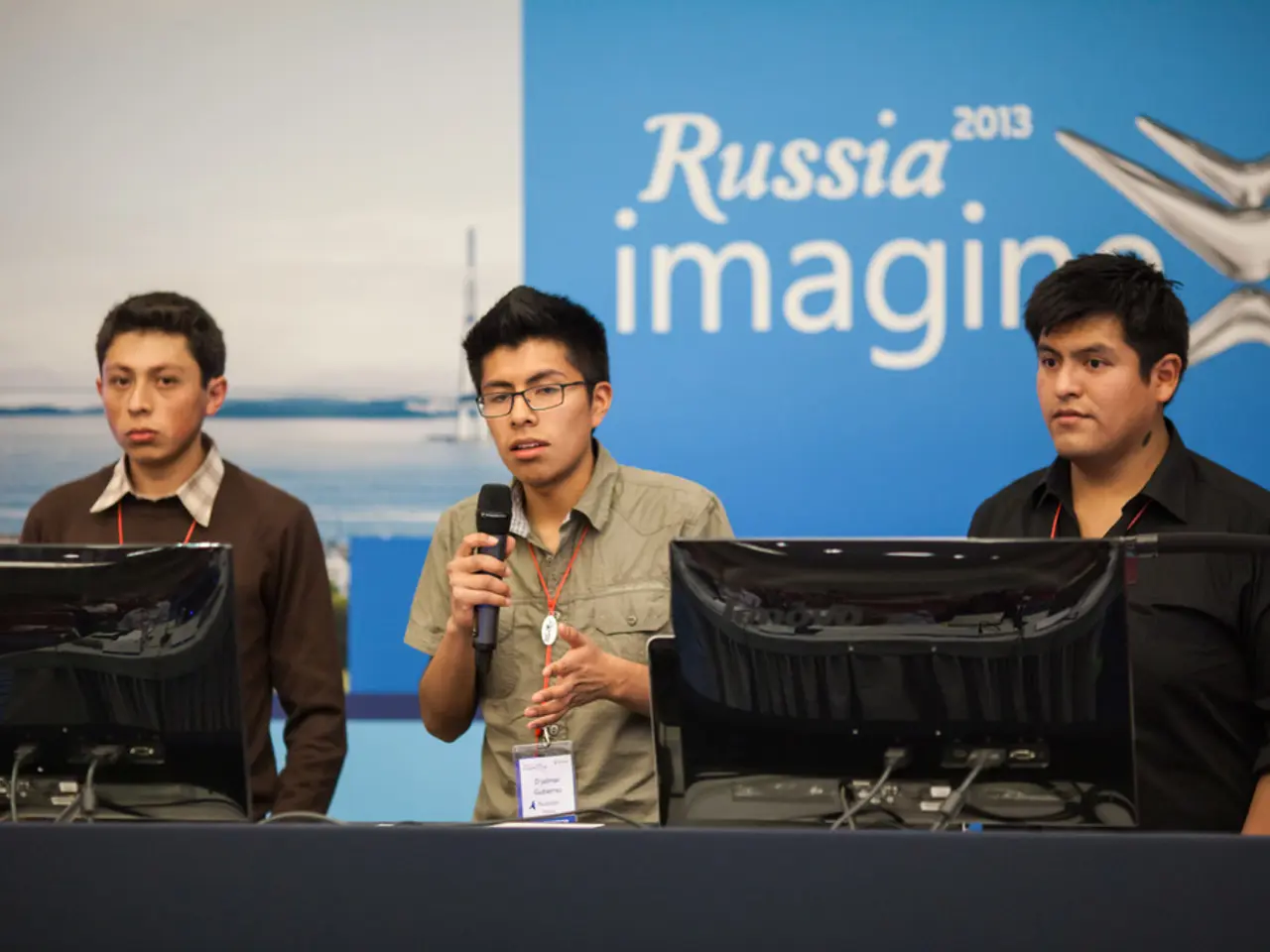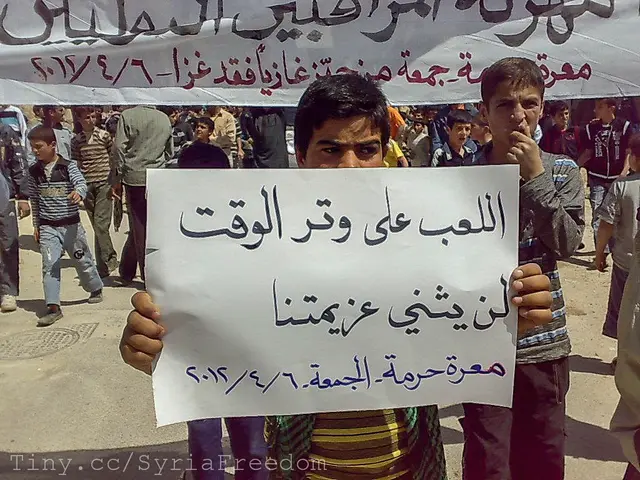Artificial Intelligence may pose an existential threat to Taiwan's future.
In the digital age, Taiwan finds itself at a crossroads, grappling with the increasing threat of artificial intelligence (AI)-generated disinformation. This insidious menace, if left unchecked, could potentially undermine the island nation's democratic institutions, social order, and even its very survival.
At the heart of this challenge is the Chinese Communist Party (CCP), which has weaponized AI and invested heavily in developing deepfake technology. The CCP's cognitive warfare has escalated to such an extent that it might soon outmaneuver existing defences, automatically generating Hoklo-language and Hakka-language pro-unification propaganda.
Taiwan's domestic systems for detecting and tracing disinformation are underdeveloped. The government recognises this vulnerability and is taking steps to strengthen its defences. The Ministry of Digital Affairs, in collaboration with national security agencies, academic institutions, and civil society, is currently working on creating a real-time AI defence centre to monitor AI attacks and deepfakes by foreign agencies.
However, Taiwan lacks sufficient defensive capabilities against AI-generated disinformation. The public, too, is largely unprepared. Media literacy education on deepfake detection should be promoted in schools and on social media platforms to equip the populace with the necessary skills to identify AI-generated disinformation.
Recognising the global implications of AI, OpenAI CEO Sam Altman has acknowledged that ChatGPT's behaviour is influencing the world. Altman, who is responsible for the decisions related to ChatGPT's moral framework, has expressed concerns about the potential unpredictable consequences of the technology.
Acknowledging the need for international cooperation, Taiwan should strengthen its ties with allies. The government is considering establishing a joint defence network with the US, Japan, and Europe to counter the AI threats posed by hostile forces.
As the battle against AI-generated disinformation intensifies, it is crucial that Taiwan takes decisive action. The survival of the nation depends on swiftly establishing defensive mechanisms against this insidious threat. Failure to do so could result in losing a war without any bloodshed.
Moreover, the government should enact laws on AI information warfare defence to define legal responsibilities and consequences for foreign hostile forces using AI. With clear safety regulations surrounding generative AI still lacking in Taiwan, such legislation would provide a much-needed framework for addressing this complex issue.
In conclusion, Taiwan faces a formidable challenge in the fight against AI-generated disinformation. However, with a concerted effort from the government, civil society, and the public, this threat can be mitigated, ensuring the continued prosperity and democracy of the island nation.
Read also:
- Inherent Skills Know No Bounds, Yet Access to Employment Remains Unequal: Suggestions for a More Equitable Job Market of the Future
- Impact of a Less Democratic U.S. on Europe's Political Landscape
- Trump's influence is prominent in the race for Georgia's governor in 2026, as Duncan and Raffensperger announce their candidacies
- Questioning of mobile phone usage data by Irish drivers recorded by RSA







